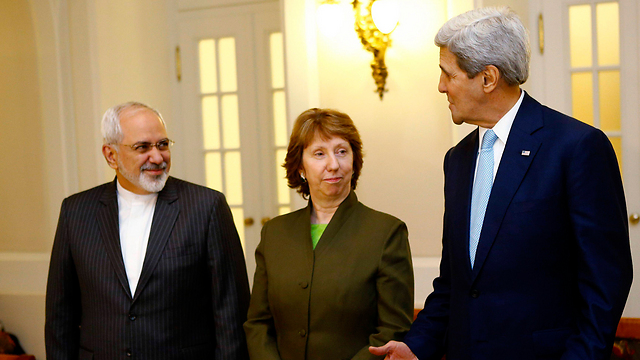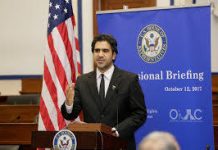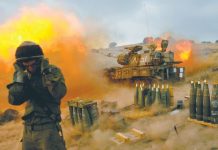Critical Points To Consider In Understanding The Iranian Nuclear Deal
By: Y. Carmon, A. Braunstein, and A. Savyon*
The Middle East Media Research Institute/July 24, 2015
Introduction
The following analysis is the first in a series which will discuss the Iranian nuclear deal and will examine the JCPOA from the American perspective. It will focus on the components of the JCPOA as a legal document. It will also draw on United Nations Security Council Resolution (UNSCR) 2231 which endorsed the JCPOA for reference. It will not discuss possible future implications, nor does it mean to be an overall assessment of the deal.
It should be emphasized that, contrary to how it is perceived, the JCPOA is not a bilateral or multilateral contract between the United States and/or Europe and Iran. Nothing has been signed and nothing is judicially binding between any of the parties. It is a set of understandings that was sent to a third party, the United Nations Security Council (UNSC), for endorsement. This structure is a result of Iran’s insistence to not sign any bilateral or multilateral contract.
JCPOA Provisions Prevent Future Inspection Of Military Sites[1]
The provisions of the agreement can be interpreted to prevent the inspection of military sites rather than enable inspection. The provisions for inspection by the IAEA create two categories:
The first category dictates that inspectors may request to enter a site that is suspected of having nuclear material. There is a subsequent process that the IAEA must go through in order to access that site, involving a back-and-forth exchange of requests and explanations with Iran. If an agreement cannot be reached, the Joint Commission, which is composed of the E3/EU+3 and Iran,[2] can decide on the appropriate means to resolve the issue within 7 days on the basis of 5 votes out of its 8 members, and Iran must implement the decision within 3 days.
The second category distinguishes military sites from the other sites to which the IAEA may request access by stating, “…such requests [for access] will not be aimed at interfering with Iranian military or other national security activities.”[3] This provision effectively excludes a priori sites where Iran can claim that the IAEA is interfering with its military or national security activities. Therefore, the process described in the first category which would force Iran to submit to inspection at the end of the 24-day request period does not apply.[4]
The provisions of the JCPOA also stipulate that the IAEA will have to “make available relevant information”[5] when explaining why they want access to a site. This provision may serve as a basis for delay and obfuscation of access by Iran, claiming that it needs relevant sources of intelligence revealed, as it has done in the past.
Duration Of Sanctions Could Be Less than 8 Years Dependent On Report From The Director General Of The IAEA
The JCPOA establishes an option to make Transition Day arrive sooner than the specified 8 year time period by saying, “Transition Day will occur 8 years from Adoption Day or upon a report from the Director General of the IAEA to the IAEA Board of Governors and in parallel to the UN Security Council stating that the IAEA has reached the Broader Conclusion that all nuclear material in Iran remains in peaceful activities, whichever is earlier.”[6] There is no time limitation regarding in which year the Director General of the IAEA could provide this report.
Re-Imposition Of Sanctions Dependent On Security Council
The Security Council adopted UNSCR 2231 on July 20, 2015. Articles 11 and 12 of the resolution stipulate that the re-imposition of sanctions in case of “non-performance” by Iran may occur. However, the final sentence in Article 12 provides a loophole so that sanctions may not re-imposed by saying, “…unless the Security Council decides otherwise.”[7]
Accumulation Of Natural Uranium Permitted Equal To Present Amount Of Enriched Uranium
The provisions of the JCPOA stipulate that Iran will have to dispose of its 10 tons of low-level enriched uranium either by transferring it to Russia or by selling it in the commercial market. It also stipulates that the amount of enriched uranium that Iran is allowed to have cannot exceed 300 kilograms for 15 years. While the provisions are designed to inspect Iran’s uranium mining facilities, supply chain, and the quantity of enriched uranium it possesses, it allows Iran to trade its enriched uranium for equal amounts of natural uranium for 15 years. This uranium could be enriched to higher, weapons-grade levels after the 15 year time limit.
PMD Investigation: Iran Demanded Only To Help In Process, Results Will Not Impact Implementation Of JCPOA
The provisions in the JCPOA demand only that Iran collaborate with the IAEA in the process of verification of the Possible Military Dimensions (PMD) in order for the process of lifting sanctions to begin. It is indifferent about the results, i.e. it makes no mention of what would happen if the verification process were to discover that Iran had previously attempted to develop nuclear weapons.[8]
Parchin Investigation Put Into Secrecy
Under the JCPOA, the handling of the Parchin issue has been put into secrecy. Parchin is an example of suspected nuclear weaponization activity that took place in a military base.[9] Not revealing the details of the case conceals Iran’s attempt to build a military option contrary to its repeated denials of such allegations.[10]
Arak Remains Heavy Water Facility, Authorized For Heavy Water Export
The Arak facility houses Iran’s heavy water production plant and a heavy water reactor. Despite the vague wording regarding the state of the reactor following the endorsement of the JCPOA (i.e. Iran will “redesign” the reactor and it will be “modernised”),[11] it will still continue to operate partly using heavy water. In addition, “All excess heavy water will be made available for export to the international market.”[12]
Interview Of Military Scientists Excluded From JCPOA
The Western demand in the negotiations that Iran allow the interviewing of Iranian nuclear scientists was excluded altogether from the JCPOA.
*Y. Carmon is President and Founder of MEMRI; A. Braunstein is a Research Fellow at MEMRI; A. Savyon is Director of the MEMRI Iranian Media Project.
[1] It should be noted that according to reports, the United States administration did not see the inspection of military sites as “appropriate.” A government spokesman told reporters that, “The entry point isn’t we must be able to get into every military site, because the United States of America wouldn’t allow anybody to get into every military site, so that’s not appropriate.” http://news.yahoo.com/us-says-system-reached-un-access-suspect-iran-162509010.html
[2] The Joint Commission will “monitor the implementation of this JCPOA and will carry out the functions provided for in this JCPOA. The Joint Commission will address issues arising from the implementation of this JCPOA and will operate in accordance with the provisions as detailed in the relevant annex.” JCPOA, Preamble and General Provisions, ix. http://apps.washingtonpost.com/g/documents/world/full-text-of-the-iran-nuclear-deal/1651/
[3] JCPOA, Annex I, Q.74. For full text, see Footnote 2.
[4] It should be mentioned that the JCPOA does not in any way mention permission to access military sites. The term “military” is only referenced in regard to the prevention of access to sites where such access may interfere in military activities. Iranian Defense Minister Brigadier General Hossein Dehqan confirmed this on July 20 by stating, “Definitely, we will not give any (international) authority access to our military and security secrets.” http://www.tasnimnews.com/english/Home/Single/805144 Similarly, Supreme Leader Khamenei’s top adviser for international affairs Ali Akbar Velayati stated on July 21, “They (the westerners) have made some comments about defensive and missile issues, but Iran will not allow them to visit our military centers and interfere in decisions about the type of Iran’s defensive weapons.” http://english.farsnews.com/newstext.aspx?nn=13940430000961
[5] JCPOA, Annex I, Q.76. See Footnote 2 for link to text.
[6] JCPOA, Annex V, D.19. See Footnote 2 for link to text.
[10] Furthermore, the integrity of the IAEA investigation into Parchin has come into question: during the Senate Foreign Relations Committee hearing on July 23, Senator Bob Menendez questioned Secretary Kerry about whether the soil samples that will be given to the IAEA to test would be provided by Iran. Secretary Kerry only responded that the information was confidential. https://www.youtube.com/watch?t=730&v=N4TK8hOLrNA
[11] JCPOA, I.B.8. See Footnote 2 for link to text.
[12] JCPOA, I.B.10. See Footnote 2 for link to text.




















